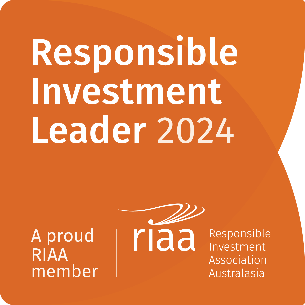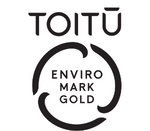Keeping companies accountable

3rd June 2021: This month’s commentary has been written by Devon’s Chief Investment Officer and Portfolio Manager, Mark Brown.
At Devon the integration of Environmental, Social and Governance (ESG) factors into our investment decisions has always made common sense and, we believe, has led to enhanced risk-adjusted returns for our clients. Whilst the ESG acronym may be a relatively new concept to some investors, the idea of investing in companies which operate in an ethical and sustainable way with due consideration to other stakeholder interests is not. Including broader non-accounting issues within an investment framework has always made for better long-term investment outcomes and less volatility. In simple terms, being a good corporate citizen has usually been good for business.
What has changed in more recent times is the broader acceptance by the wider investment community that these issues matter. This acceptance has been driven by a number of factors ranging from an altruistic view that investors can make a change for good in broader society, to a more mercenary position that you want to avoid companies which are likely to have a higher cost of capital going forward - due to them potentially being excluded from ESG screened portfolios, elevated management distractions and the possibility that certain assets could be orphaned. This investor-led change has seen even the more agnostic of investors, such as passive funds, try to re-address their investment mandates.
Remy Briand, Managing Director, MSCI ESG Research, defines ESG Investing as the consideration of environmental, social and governance factors alongside financial factors in the investment decision-making process. Whilst sometimes used interchangeably with the term sustainable investing, we believe the concept of ESG Investing is broader than this and refers to more than identifying investments that are environmentally sustainable.
The magnitude of this change in investor sentiment has seen some of the world’s largest asset managers respond, albeit somewhat belatedly. Blackstone, the world’s largest fund manager with approximately USD6.9 trillion in assets, often accused of ESG inconsistency by environmental campaigners, has made some very definitive statements about its investment intentions in this space. In fact, in his recent letter to CEOs, the head of Blackstone Larry Fink said, “I cannot recall a time where it has been more important for companies to respond to the needs of their stakeholders. The more your company can show its purpose in delivering value to its customers, its employees, and its communities, the better able you will be to compete and deliver long-term, durable profits for shareholders.”
Many ethically orientated investors have over the years excluded certain investments such as tobacco and armaments from their funds and this hard exclusion list has continued to grow. Blackstone, for instance, has recently added to its exclusion list by moving to ban investments in coal from all its actively managed funds. However, it’s important to note that the bulk of their funds lie in index-related funds, which will make the transition far longer dated than many investors would like to see. In truth passive funds struggle to manage ESG issues. Many investors now not only want their funds to avoid businesses that have low ESG ratings but also actively engage with companies to improve practices. In many cases simply selling a share, which is all an exclusion list achieves, is seen as little more than virtue signalling and a marketing spin. It takes genuinely active investment management to engage with businesses.
For us at Devon, the concept of ESG investing has at its heart an understanding of the true meaning of ownership and the responsibilities that come with investing on behalf of our clients. As a working example of active ESG in practice, we recently had interactions with two chairs of companies in which we have invested. Often our interactions are conducted at a more personal level, however there are certain circumstances which drive a more formal interaction such as letters or presentations to company boards. Interestingly our recent approaches to these boards on issues of concern had very different responses.
Our first letter was to the Chairman of Precinct Property. Precinct had sought and was granted a waiver from the NZX to by-pass due process with respect to the internalisation of its management contract. Whilst we are in favour of the internalised model for real estate investment trusts, our concern rests with the circumvention of appropriate governance procedures, which saw the deal completed without the necessary shareholder vote. Seeking waivers from the NZX to circumvent rules which are in place to protect shareholders sets a dangerous precedent which other less independent boards may try to emulate. Notwithstanding the sub-committee’s independence there remains the potential, if not the perception, for large conflicts of interest in what was a related party transaction. Our view is that governance had been undermined in order to expediate a deal, the counterfactual of which investors such as ourselves will never know. We would argue that in such transaction’s governance should remain paramount and unchallengeable. To his credit the Chairman, Craig Stobo, responded to our letter immediately and facilitated a conference call with all independent board members to address our issues. Whilst our concerns over the NZX waiver remain unchanged the speed, response and seriousness with which our concerns were addressed gives us greater confidence in Precinct’s commitment to better governance going forward.
Our second interaction was with the Chairman and board of Rio Tinto Plc, which related to AGM items requiring votes for both the re-election of director Megan Clark and the adoption of the company’s Remuneration Report. The background to our concern on these matters is the company’s responsibility for the destruction disaster at Juukan Gorge (Rio Tinto destroyed an indigenous site whilst exploring in Western Australia), and our concerns about the company’s ongoing response.
Whilst we realise that this is a complex issue and we understand that several senior executives have exited as a result of the disaster, we feel that Megan Clark as the Chair of the Sustainabilty Committee should be ultimately responsible. Given the company’s poor history with respect to governance (the Simandou Iron Ore and Riversdale Coal write-downs as other examples) we would have expected greater vigilance over such issues. We fully expect the Sustainability Committee to take responsibility for the issues. This appeared not to be the case and as such we could not endorse Megan Clark.
We also voted against the Remuneration Report and believe that this was warranted based on the small size of the “malus” (downward) adjustment relative to both the size of the total CEO exit package and the extensive damage done to Rio Tinto’s reputation, particularly at a time when ESG issues are of such importance to investors. Rio Tinto CEO’s have historically been well rewarded on exit, notwithstanding the fact that many have left with shareholders bearing the brunt of significant write offs, including those incurred with Alcan, Simandou Iron Ore and Riversdale Coal. Mining companies already find themselves at the very edge of ESG constraints and whilst the loss of Juukan Gorge is less financially tangible, we think that its repercussions will be felt for some time, manifesting in higher discount rates by investors and far more sceptical engagements with the traditional owners of the land on which the company operates. Consequently, our vote against the Report underpins our view that the malus adjustment did not truly reflect the damage done to the brand and reputation of Rio Tinto. Companies have both a financial and social license to operate. Rio’s continued actions are clearly eroding this social license.
Interestingly we have to date (over a month later) received no response from the board or Chairman. Given the company’s track record, this lack of response is unsurprising but never the less disappointing. We are meeting with the company again soon and will discuss our concerns in person. It is our view that mining companies will be facing ever increasing scrutiny and potential hard exclusions by investors could ultimately increase their cost of capital. Given that the world is still dependent on resources we would prefer to engage and push for change rather than simply exit, which looks good but often achieves nothing. As an example of the positive impact that shareholders can make through engagement, active investors last week successfully forced one of the world’s largest energy companies, Exxon Mobil, to replace at least two of the company's 12 board members with directors who are seen as better suited to fight climate change, bolster Exxon’s finances and guide it through a transition to cleaner energy.
We are already seeing the effects of a global reallocation of capital away from those companies which fall short on ESG fundamentals, resulting in these stocks trading at significant discounts to their own histories and more sustainable peers. The persistent historic perception that ESG-based investing requires a performance sacrifice no longer holds water. Research by Morningstar suggests that 57 of their 65 ESG indexes outperformed for the five-years through to the end of 2020. We continue to believe that actively incorporating ESG into our investment decision making will improve the outcomes that we achieve for our clients and we will continue to interact with and encourage our portfolio companies to engage in sustainable business practices that benefit all stakeholders.





